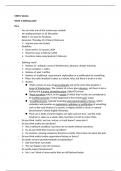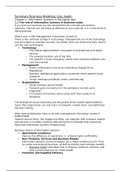Summary
Summary Mirror of Myth: Stories
- Course
- Institution
This summary contains all the important information for the course Stories of the university minor Mirror of Myth. It's a summary of all the lectures and includes some extra overviews, explanations, seminar notes and answers to prepatory questions. With this, a good grade is guaranteed!
[Show more]




